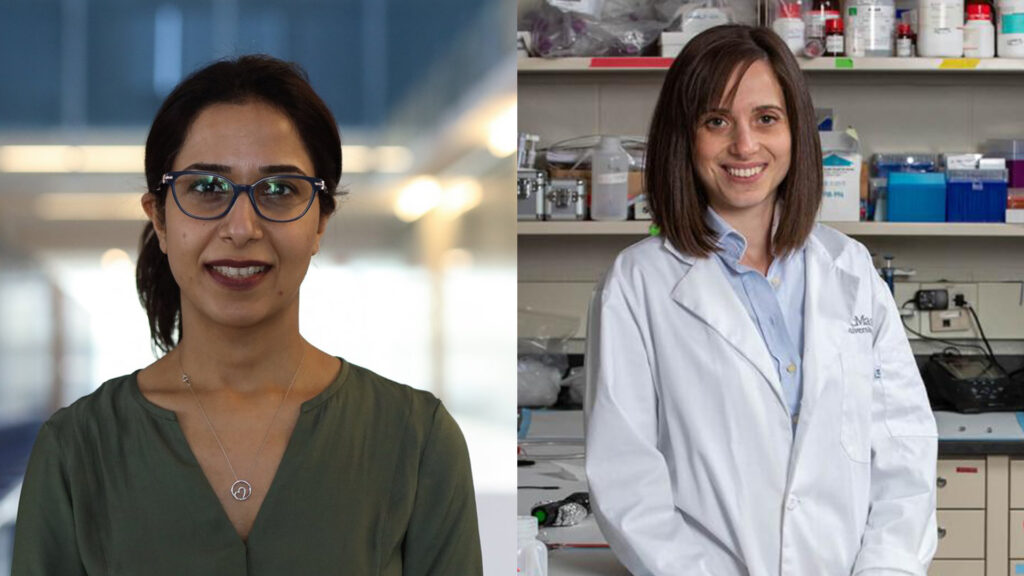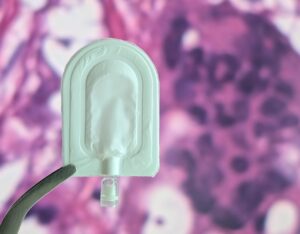
Dr. Mahla Poudineh (University of Waterloo), in collaboration with Dr. Leyla Soleymani (McMaster University), is developing a wearable continuous ketone monitor, which can indicate a life-threatening condition called diabetic ketoacidosis (DKA). This device combines novel biology (ketone measurement) with novel engineering (hydrogel microneedles) to produce a groundbreaking new device – the Wearable Aptalyzer.
Biology: Similar to a continuous glucose monitor (CGM), this device will detect biomarkers from the interstitial fluid under the skin. Dr. Poudineh and her team are calibrating the device to recognize and measure real-time ketone levels, something that can currently only be done using urine testing.
Engineering: Dr. Poudineh’s one-centimeter patch provides a wearable solution that enables real-time continuous biomarker monitoring without the discomfort associated with current canula insertion methods. Her patented patch consists of 100 hydrogel “soft microneedles” placed on the skin like a bandage. The microneedles push into the skin just a few millimeters which allows them to touch interstitial fluid and swell to increase surface area.
Together, Dr. Poudineh and Dr. Soleymani have created a company – Aptec – to commercialize this technology and bring it to those living with T1D.

Dr. Poudineh’s microneedle patch
New Grant: We are excited to announce a second Breakthrough T1D grant for this dynamic team that will expand their work to develop a continuous insulin monitor via the same methods. This would allow people with T1D to have real-time measures of insulin in their system, often known as “insulin on board”, and better adjust against upcoming meals or activities.
Watch here to learn more: https://www.linkedin.com/posts/uwaterloo_painless-diabetes-patch-to-replace-needle-activity-7306675563232907265-l1BV?utm_source=share&utm_medium=member_desktop&rcm=ACoAAA2JPFsBifZfTB213DnRbGd_UixBgd0NReg
Breakthrough T1D Canada congratulates Drs. Poudineh and Soleymani on their recent achievements.
Dr. Mahla Poudineh is making big waves in the medical devices field and was recently named a Tier 2 Canada Research Chair in Health Monitoring BioNano Devices.
Dr. Leyla Soleymani holds a Canada Research Chair in Miniaturized Biomedical Devices and was recently awarded the prestigious Dorothy Killam Fellowship.
Their work will help significantly improve daily living with T1D, while we work towards cures.



